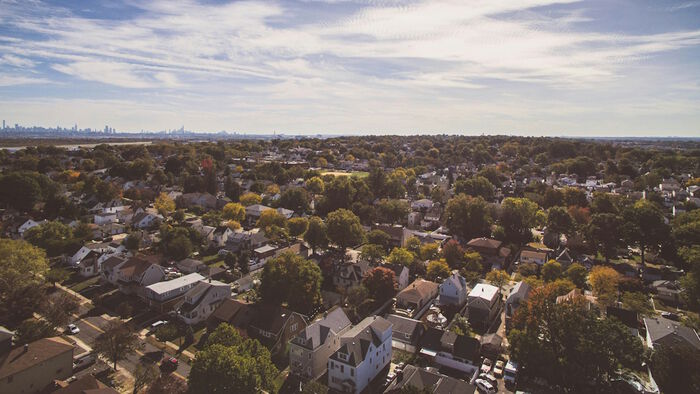As Europe awoke to a landslide victory for the Dutch Party for Freedom (PVV), party leader Geert Wilders received congratulations from like-minded politicians including Marine Le Pen, Matteo Salvini, and Viktor Orbán. On 22 November, the PVV became the largest party by far in the Dutch political system, with approximately 25 percent of the popular vote (37 out of 150 seats). Until election day, the PVV was competing in a neck-to-neck race with three other parties: the coalition between the Green Left (GL) and the Labour Party (PvdA) (17 percent), the liberal-conservative VVD (16 percent), and the three-month-old party New Social Contract (NSC), led by former Christian Democrat Pieter Omtzigt (13 percent of the vote).
A recipe for democratic erosion
As my inbox filled with messages of surprise and defeat, the questions that repeatedly arose were: how did this happen, why did this happen, and should we be surprised at this outcome in the first place? The answers to these questions are numerous and complex, but I want to emphasize one crucial message: Wilders’s victory is the by product of over a decade of undemocratic liberalism under four Cabinets led by VVD-politician Mark Rutte, characterized by numerous scandals, and political leaders’ lack of accountability.
In 2021, Rutte’s third Cabinet resigned over the child benefit scandal, in which more than 20.000 families were wrongly accused of tax fraud, leading to thousands of families suffering under severe debts after forced repayments and heavy fines. The scandal has raised important questions about parliament’s ability to act as a corrective to the government, as it became clear that early warning signs were ignored, and crucial information was not shared with parliament. After repeated promises to compensate those affected by the scandal, the government has failed to fulfill this commitment to this day. The lack of government accountability, as well as long-standing voter dissatisfaction over rising poverty and the lack of affordable housing, education, and healthcare, have contributed to their low trust in politics, and voters’ prioritization of the overall functioning of Dutch politics as a core issue in this year’s elections. Even though Wilders is by now the longest-serving parliamentarian, promoting the same anti-Islam, anti-establishment message for almost two decades, he has remained the consistent choice of a relatively stable group of dissatisfied voters. However, the election results of last night show that his appeal has suddenly expanded beyond his base.
An open door, and lack of differentiation
How then did the PVV so effectively benefit from this political situation, as opposed to other (center-)right-wing parties who also ran on a platform of political change and anti-establishment sentiments, such as NSC and the Farmer-Citizen Movement (BBB)? After two decades of oppositional politics (except for one brief period of support for a minority government), how did the PVV manage to present itself as a credible and viable alternative to the status quo?
First, the outgoing coalition partner VVD left the door open for collaboration with the PVV. Party leader Dilan Yesilgöz, contrary to her predecessor Mark Rutte, stated she did not want to exclude Wilders prior to the elections, although she has repeatedly questioned the feasibility of a government including both parties, and expressed that she did not want to join a government in which Wilders is prime minister. After the election results were announced, both VVD and NSC have expressed ambivalent views on joining Wilders for government, somewhat contradicting their previous claims.
A second factor is the lack of differentiation within the political center, on precisely those points which voters indicate are the most important issues in this election, such as housing and poverty. Political scientist Tom van der Meer argues that this strategy was also used by VVD-leader Rutte in the 2021 elections, in which he repeatedly shut down political debates on crucial issues by claiming that “we all agree” and that parties need to “solve this together under my leadership”. Thus, in the context of lacking differentiation and overall alignment on key issues across the political spectrum, this leaves the center-left with little political room to navigate.
Nineteen years of hate, one week of moderation
In this context, Wilders radically shifted his tone in the week running up to the elections. A week before election day, Wilders claimed that contrary to his long-standing prioritization of an anti-Islam agenda as the core focus of his party, he now believed that “the priority now clearly lies on other issues in the coming governmental term”. During the final debate on the eve of the election, Wilders expressed his wish to be “a Prime Minister for all Dutch people”, a claim immediately disputed by VVD leader Yesilgöz. In a political landscape where 75 percent of voters were undecided two days before the election, it seems that a week of moderate talking points was enough to persuade many to vote for the PVV.
A brief glance at the PVV manifesto, however, shows a very different picture, stating that “our culture, and western way of life is being threatened by allowing entry to large numbers of people, often from non-Western, Islamic countries” and that “schoolchildren are being indoctrinated by climate activism, gender madness and with a sense of shame about the history of our country”. The manifesto advocates for banning headscarves in governmental buildings, including parliament, withdrawing previous apologies for historical slavery, and incorporating “our Jewish-Christian and humanist roots” as the “dominant and leading culture” into the Dutch constitution.
Mainstreaming the far right
Even though Wilders has stolen the spotlight, the PVV is not the only far-right party in town. Rivalry on the far-right side of the Dutch political spectrum in intense, and characterized by substantial inter-party ideological differences. Thierry Baudet’s Forum for Democracy (FVD) remains in parliament with three seats, and the FVD splinter party JA21 also managed to hold on to one seat. Regardless of their size, the impact of such parties, particularly the extreme-right FVD, should not be underestimated. The party’s openly racist, antisemitic, transphobic and conspiracist discourse is not just given a platform in parliament (only weeks ago, the FVD proudly reported that it was the only party to oppose the JA21 motion that “antisemitism has no place in the Dutch parliament”), but it also contributes to the mainstreaming of the PVV as a seemingly “moderate” alternative on the far right of the political spectrum.
Scholars have argued for some time that the far right has gone mainstream, and the Netherlands is a case in point. In the Dutch case, centrist politicians have failed to provide a viable political alternative in times of instability and financial precarity, and slowly mainstreamed nativist far-right positions on immigration and national identity. It is here that the urgent defense of liberal democracies is most needed: by providing real solutions to social issues, without succumbing to the nativist, authoritarian, and populist messaging of the far right.
.jpg)

.jpg?alt=listing)


